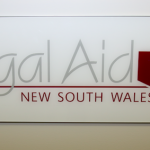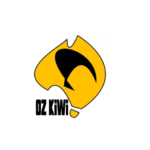Turnbull Clears the Way for Indian Company to Build Adani Mine

A bill amending native title law was passed in the Senate on June 14 with bipartisan support.
In February, attorney-general George Brandis rushed the legislation through the lower house in response to a Federal Court decision that threatened past and future Indigenous land use agreements (ILUA).
The Native Title Amendment (Indigenous Land Use Agreements) Bill 2017 reversed a precedent set in February known as the McGlade decision that found the 1993 Native Title Act required all native title claimants to sign an ILUA, or the agreement was invalid.
The amendments restore the 2010 Bygrave decision, which was a ruling by a single judge of the Federal Court that found it was only necessary for a majority of traditional owners to sign off on an agreement in order for an ILUA to be approved.
The quick fix bill
Touted as the “Adani bill,” the new law clears the way for the registration of the ILUA that was negotiated by the Indian multinational Adani, which covers the land that the proposed Carmichael coal mine would be constructed upon in Queensland’s Galilee Basin.
That agreement secured majority approval, but not a consensus, and there are questions about the credibility of the claimants who actually voted on it.
Indeed, in a private meeting in New Delhi in April, Gautam Adani, chairman of the Adani Group, expressed his concerns to prime minister Malcolm Turnbull about the impact the McGlade decision could have on his company’s mine proposal.
The PM responded, “the issue needs to be fixed and will be fixed.”
The Federal Court ruling in February had also jeopardised another 125 ILUAs that had been established between traditional owners, and big business. The amendments have now guarantee the validity of all these agreements.
However, the traditional owners of the land earmarked for the Carmichael coal mine the Wangan and Jagalingou people have currently got four legal actions pending against Adani before both the Federal Court and Queensland’s Supreme Court.
The sham agreement
Wangan and Jagalingou Traditional Owners Council youth spokesperson Murrawah Johnson told Sydney Criminal Lawyers® back in March that Adani had approached the local people in 2012 and tried to negotiate an ILUA over the proposed mine site under the provisions of section 31 of the Native Title Act.
However, the Wangan and Jagalingou people voted against this. The Indian multinational repeated the approach in 2014, with the same result.
In early 2016, Adani took a different approach. According to Ms Johnson, they invited a few hundred Indigenous people who weren’t actual traditional owners of the land. The company then paid them off and got them to vote in favour of the mine.
“They put that ILUA in for registration with the National Native Title Tribunal (NNTT),” Ms Johnson explained. “We’re challenging the registration of that Indigenous land use agreement on many grounds.” And one of those is that many who voted on it weren’t Wangan and Jagalingou people.
However, just days prior to the Adani agreement being registered with the NNTT in February, the Federal Court made the McGlade decision in regards to the Noongar native title settlement. The tribunal then put a freeze on the registration of all new ILUAs.
The largest ever settlement was overruled
Established in July 2015, the Noongar settlement comprised of six ILUAs between the estimated 40,000 people of the Noongar nation and the Western Australian government.
The settlement is worth $1.3 billion dollars and involves the Noongar traditional owners surrendering their native title rights over an area of 200,000 square kilometres of southwestern WA.
Four of the named applicants representing the various language groups challenged its validity in court, as they were concerned it would strip the local people of their native title rights for good.
The highest court in the land ruled on February 2 that the landmark agreement was invalid, under section 24CA of the Native Title Act, because four of the ILUAs were not valid, as not all claimants had signed them.
The ruling was praised by many as a validation of the Indigenous way of carrying out the decision-making process via consensus. But, it sent Brandis and his cohorts running towards the chambers of parliament with fresh legislation under their arms.
The battle is far from over
Now that the Turnbull government’s amendments have quashed the Federal Court ruling that invalidated the Noongar native title settlement, those claimants who had it vetoed initially have vowed to fight on and take their case to the High Court.
In regards to the four legal actions that have been brought against Adani by the Wangan and Jagalingou people, Shadow attorney-general Mark Dreyfuss remarked in parliament on the day that the native title amendments were passed that they “will be entirely unaffected by this bill.”
These proceedings that “may very well impact the validity of the” ILUA won’t commence until March next year, Mr Dreyfuss outlined. He further said that there were “some very serious allegations of fraud that have been made against Adani” that could affect the outcomes of the legal actions.
The limitations of native title
Researchers from the University of Queensland outlined in the Conversation that the legal strategy of the Wangan and Jagalingou Traditional Owners Council is to move beyond the constraints of the native title process, as its “a highly contingent and weak form of title.”
Institute of Koorie Education curriculum developer Terry Mason explained last week that prior to the establishment of the Native Title Act, Indigenous people were advocating for land rights, which result in a more “robust” form of title over land and its resources.
“The Native Title Act was always a flawed act in the opinion of Aboriginal people,” Mr Mason said. “If there was to be any contesting amongst stakeholders over native title claims, then the Aboriginal claim was subservient and lost.”
The Awabakal man said that the native title amendment bill is about more than just Adani. He outlined that it’s about the control of land and resources, and denying the nation’s First Peoples their sovereignty and autonomy.
Inalienable Indigenous rights
In their legal challenge, the Wangan and Jagalingou Traditional Owners Council is asserting the Indigenous rights enshrined in the United Nations Declaration on the Rights of Indigenous Peoples, according to the Queensland University researchers.
Article 3 of the declaration outlines that Indigenous people have the right to self-determination, and with this the right to determine their political status and pursue their economic, social and cultural development. While article 4 establishes the rights of autonomy and self-government.
However, when the UN Indigenous declaration was adopted overwhelmingly by the UN General Assembly on September 13 2007, Australia – under the Howard government – was one of only four countries that voted against the agreement.
The fight continues
Senior spokesperson for the Wangan and Jagalingou Traditional Owners Council, Adrian Burragubba said in a statement that Adani’s problems with the traditional owners are far from over. And their fate will be decided in the Federal Court in March next year.
“Our people are the last line of legal defence against this mine and its corrosive impact on our rights, and the destruction of country that would occur,” Mr Burragubba said. “We draw the line today. We declare our right to our land. There is no surrender. There is no land use agreement.”







